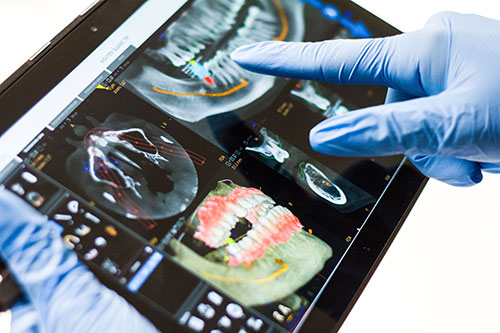 According to the American Dental Association, there were a total of 2.1 million emergency visits related to dental conditions in 2017, with tooth decay and periodontal disease being the more common reasons. Dental diseases could be prevented by practicing proper dental care as well as preventive dentistry.
According to the American Dental Association, there were a total of 2.1 million emergency visits related to dental conditions in 2017, with tooth decay and periodontal disease being the more common reasons. Dental diseases could be prevented by practicing proper dental care as well as preventive dentistry.
Preventive Dentistry is the action taken by a patient to promote good oral health and a bright smile for years to come. Preventative dentistry can include anything from eating a balanced diet and drinking plenty of water, daily brushing and flossing, and ensuring you keep up with your twice-yearly check-ups.
Preventive Dental Care
Preventive dental care is a broad term that refers to the preventative dental procedures used to treat dental diseases at an earlier stage. It also includes at-home oral care, including daily brushing, flossing, and chairside treatments by dentists. The goal is to keep your teeth and gums healthy, preventing tooth loss.
What is Considered Preventive Dentistry?
Preventive dentistry can be any number of services provided during your regular visit to prevent future oral health problems.
Here are some examples of preventive dentistry:
X-rays allow dentists to see potential problem areas that your dentist can not see with regular oral exams.
It’s important that you regularly visit your dentist for a check-up even if you don’t have any pressing concerns. Since checkups can help spot early signs of cavities and gum diseases, the American Dental Association recommends getting checkups every six months.
Brushing cleans the bacteria from your teeth but not always and not as effectively. Dental cleaning, on the other hand, removes the buildup of plaque and bacteria from the teeth and under the gums tissue. Depending on the condition of your teeth, your dentist may suggest cleaning every 6-12 months.
Sealants are protective coatings that your dentist paints on the chewing surfaces of the molars to prevent the formation of cavities.
The dentist applies fluoride treatments in the form of gel, solution, foam, or varnish to teeth, especially for people with a higher risk of tooth decay or erosion.
Goals of Preventive Dentistry
The goal of preventive care is to maintain oral health through proper hygiene practices and regular dental checkups. With this approach, invasive treatments like fillings are kept to a minimum. It also helps identify early signs of periodontal disease and other debilitating health conditions.
Benefits of Preventive Dental Care
Preventive dental care goes beyond deep cleaning and dental hygiene. Here are a few benefits of preventive care.
- A dental hygienist can help prevent cavity formation with the help of deep cleaning and sealants.
- Deep cleaning can also prevent gum diseases. Likewise, with regular visits, your dentist can identify the signs at an early stage and take preventive steps.
- Bad breath isn’t just about poor hygiene. It can also be a sign of tooth decay or infections. Your dentist can help identify the reasons and treat them.
- Your dentist can help catch jaw problems like bruxism and temporomandibular joint (TMJ) disorders.
- Regular visits can help identify the dental problems early, thereby minimizing costs.
- Dentists also help promote good oral hygiene habits such as brushing and flossing.
- Fluoride strengthens the teeth and fights off bacteria. Your dentist will apply a fluoride treatment on the teeth to combat natural erosion.
- For children playing sports, dentists can supply a mouth guard to prevent injuries.
Cost of Preventive Dental Care
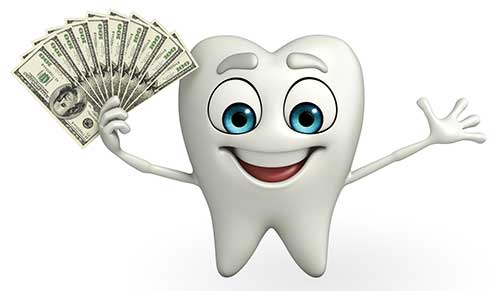 The cost of preventive dental care for a child costs anywhere from $65-$100 per visit. Fluoride treatments cost $30-$35 per tooth until two years, and a sealant treatment at $35-$40 per tooth.
The cost of preventive dental care for a child costs anywhere from $65-$100 per visit. Fluoride treatments cost $30-$35 per tooth until two years, and a sealant treatment at $35-$40 per tooth.
For an adult of 21 years or older, a regular checkup and cleaning cost $150-$250, and restorative services like root canals, cavity fillings, chipped teeth, resin restorations, etc., cost as much as $750 – $1500 additionally.
A dental plan helps make dental care more affordable over the years.
Importance of Preventive Dentistry
Preventive dentistry is the practice of maintaining good oral health, including dental checkups and teeth cleanings, so that any potential issues are identified and treated earlier on. During your visit, the dentist will examine you for signs of cavities, gum disease, etc., and advice you on preventive dental care.
Here are some of the reasons why preventive dental care is important.
- A dentist performs a thorough checkup of your teeth and gums, thereby identifying any budding health concern.
- It is cheaper to have preventive measures taken rather than root canals or teeth reconstruction, which may cost thousands of dollars.
- Your dental hygienist can guide you with good oral hygiene practices, from a toothbrush, toothpaste, and mouthwash to the right technique to clean your teeth.
- Preventive dental checkups can also help identify health conditions such as diabetes, soft tissue diseases such as oral cancer, etc.
Key Steps in Preventive Dentistry
The key point with preventive dentistry is to do everything within your reach to improve your oral health.
Here are a few steps to help you with preventive care:
- Eat mindfully and reduce your sugar consumption.
- Drink plenty of water.
- Eat a balanced diet so that your body gets all the nutrients naturally.
- Dental sealant treatments for children to prevent decay.
- Fluoride treatments for children under 18 years old.
- Brush twice a day and floss every day.
- Make sure you have regular dental checkups and deep teeth cleanings twice a year.
Nutrition and Oral Health
The food that we intake impacts our teeth and gums; A diet rich in carbohydrates, proteins, vitamins, minerals, micro, and macronutrients is beneficial for the teeth and the general health of the body. Any imbalance can lead to malnutrition and compromised oral health.
A deficit and an oversupply of the nutrients can lead to:
- Erosion – A diet rich in phosphoric acid, citric acid, ascorbic acid, tartaric acid, carbonic acid, and malic acid can cause erosion. These acids can be found in soft drinks, wine, fruit juices, herbal teas, etc.
- Caries – Dental caries or decay happens when your diet is packed with dietary sugars like sucrose, fructose, glucose, maltose, etc. A high-fiber diet helps in preventing decay by absorbing the sugars.
- Periodontal disease – Deficiency of nutrients such as calcium, folic acid, and vitamins A, C, and E can cause gum disease.
- Oral cancer – While cancer is caused by genetic and environmental factors, a diet rich in antioxidants such as vitamins A, C, E, beta carotene, and selenium reduces the risk.
Ways to Improve Your Dental Health
While preventive dental services can go a long way in maintaining dental health, much of the care starts with you. Adopting healthy dental habits at a young age can help you prevent oral problems such as cavities, gum disease, etc.
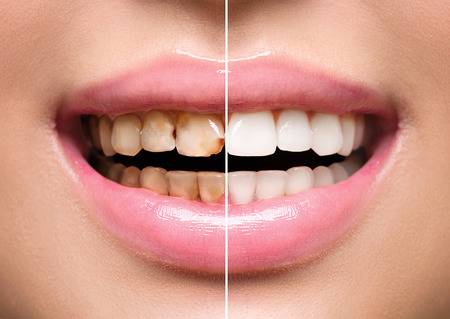 Keep your teeth clean by brushing twice a day- morning and night with fluoride toothpaste and a soft-bristled brush. Your dentist can recommend the right products and instruct you on the proper technique.
Keep your teeth clean by brushing twice a day- morning and night with fluoride toothpaste and a soft-bristled brush. Your dentist can recommend the right products and instruct you on the proper technique.- Flossing once a day can stimulate the gums and reduce plaque.
- Clean your tongue every time you brush to prevent the buildup of plaque.
- Your toothbrush should be soft; stiff bristles can affect your enamel and cause the gums to recede.
- Incorporate antibacterial mouthwash in your oral health care to rinse out the food particles.
- Eat a nutritious and balanced meal; cut down on soda and sugary foods.
- Avoid smoking and using tobacco products.
- Use a mouthguard when playing contact sports.
- Ask your dentist for a bite night guard if you happen to grind your teeth at night.
- Visit your dentist twice a year for regular oral health checkups.
Connection Between Oral Health and Overall Health
Oral health is beyond healthy teeth and gums. Poor oral health affects your general health and wellness; A study by the University of North Carolina School of Dentistry states that people with gum diseases were more likely to die from heart disease and stroke.
Oral health care such as brushing your teeth and flossing helps keep the bacteria under control. In the absence of oral care, the bacteria can lead to gum diseases and tooth decay.
Poor oral care may lead to the following health conditions.
- Diabetes: Diabetic patients with gum diseases were more reliant on insulin. Diabetes can reduce the body’s resistance to infection.
- Endocarditis: It is the infection of the inner walls of the heart. Bacteria from the other parts of the mouth spreads to the heart through the bloodstream.
- Cardiovascular disease: Inflammation of the gum tissue is related to heart disease and stroke.
- Pregnancy and birth complications: Periodontal disease is linked to pregnancy complications, low birth weight, and premature birth.
- Pneumonia: When the bacteria from the lungs enter the lungs, it results in pneumonia and respiratory diseases.
- Osteoporosis: Certain drugs used to treat osteoporosis can weaken the jaw.
- Alzheimer’s: The oral health deteriorates as Alzheimer’s progresses.
Apart from that, medications such as antihistamines, decongestants, diuretics, painkillers, and antidepressants reduce saliva flow.
Preventive Dentistry for Children
Reports from the CDC state that 40% of US children between the ages of 2-11 and 59% of the children aged 12-19 are affected by dental cavities. Since they are preventable through proper oral hygiene, preventive dentistry has become more critical than ever.
Preventive dental care for children starts as soon as the first tooth breaks out. The sooner you begin preventive dentistry, the more the chances for avoiding oral problems. Visit the dentist before the first birthday. He/she will guide you with proper dental techniques and products.
Preventive Dental Services for Children
Children are more prone to cavities than adults. The candies, juice boxes, and treats are sure to cause havoc on their tender teeth.
Here are the most common preventive dental services available for children:
Food particles can stick between the teeth leading to the formation of plaque. Brushing and flossing though essential is not enough, and you need periodic cleaning of the teeth to remove plaque and tartar, thereby preventing the formation of cavities.
A sealant is a transparent material applied to the surfaces of the teeth to prevent the spread of cavities. After the sealant is in place, children can consume food without it sticking to the teeth.
Fluoride is a mineral known to prevent cavities. The dental hygienist will apply fluoride to the teeth to increase strength.
Contact sports can often result in an injury resulting in chipped or broken teeth. Mouthguards are devices custom made to suit the shape of the children’s gums and teeth to protect them from physical contact.
Children tend to lose their milk teeth before their permanent ones erupt. The space maintainers help to hold the space open until new ones emerge. These are custom-made for every child.
Preventive Dental Care Provided by Your Insurance Company
Twice a year, dental visits are essential for preventive dental care. However, without a proper dental plan, the cost of the checkups and treatments can add up to astronomical costs.
Most dental insurance plans cover dentistry services such that you do not have to pay or just copays. With co-pays, you pay half the cost for the services while the insurance company pays the other half.
Dental Insurance: Coverage
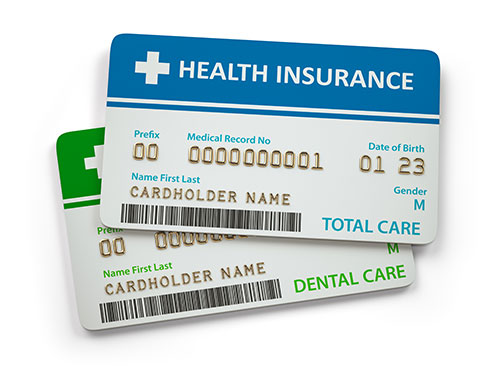 Preventive dental care covered by your insurance plans depends on the dental insurance company. While the below may be a standard indicator, you may want to ask your dentist or the dental provider about your plan.
Preventive dental care covered by your insurance plans depends on the dental insurance company. While the below may be a standard indicator, you may want to ask your dentist or the dental provider about your plan.
Most insurance plans cover the following:
- Dental visits twice a year for oral exams
- Teeth cleanings twice a year
- Fluoride treatment, which is mostly plan-dependent
- Dental sealant, which is also plan-dependent
- Annual X-rays
Conclusion
Any treatment that helps prevent decay, gum diseases, and other problems are considered preventive dentistry services. It can be anything from regularly brushing your teeth to cleanings, fluoride treatments, mouth guards, and more. Moreover, poor oral health also leads to health conditions such as heart attack, stroke, respiratory diseases, etc.
Most insurance plans cover preventive dental services like dental visits, x-rays, etc. However, you may want to talk to a life insurance provider about your plan and coverage.
Not taking your at-home preventive dental care seriously has its consequences. When someone has poor oral hygiene, this creates a situation where they accumulate plaque build-up around the teeth and gums. This then causes the gums to become red and inflamed. Plaque is filled with bacteria, which is what causes those issues along with tooth decay and gum disease. On top of making sure you take care of these care tasks at home, it’s very important to schedule a meeting with your dentist every six months. Schedule your appointment with Dr. Dalesandro today. He has many years of experience in the field of preventive dentistry.
Other timely articles you may find helpful are:
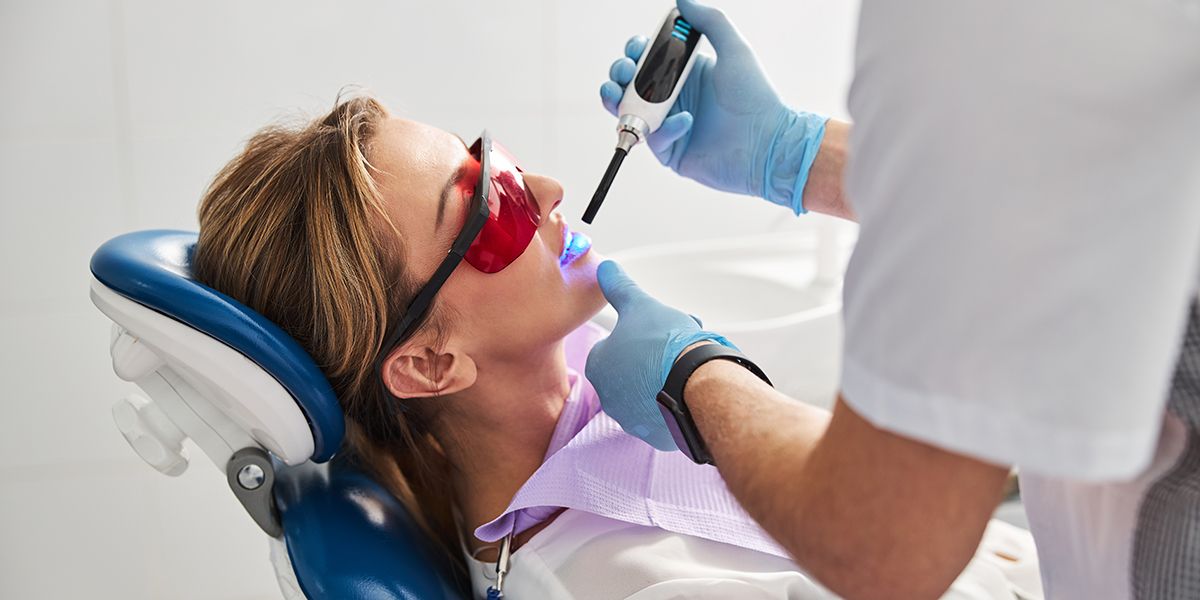
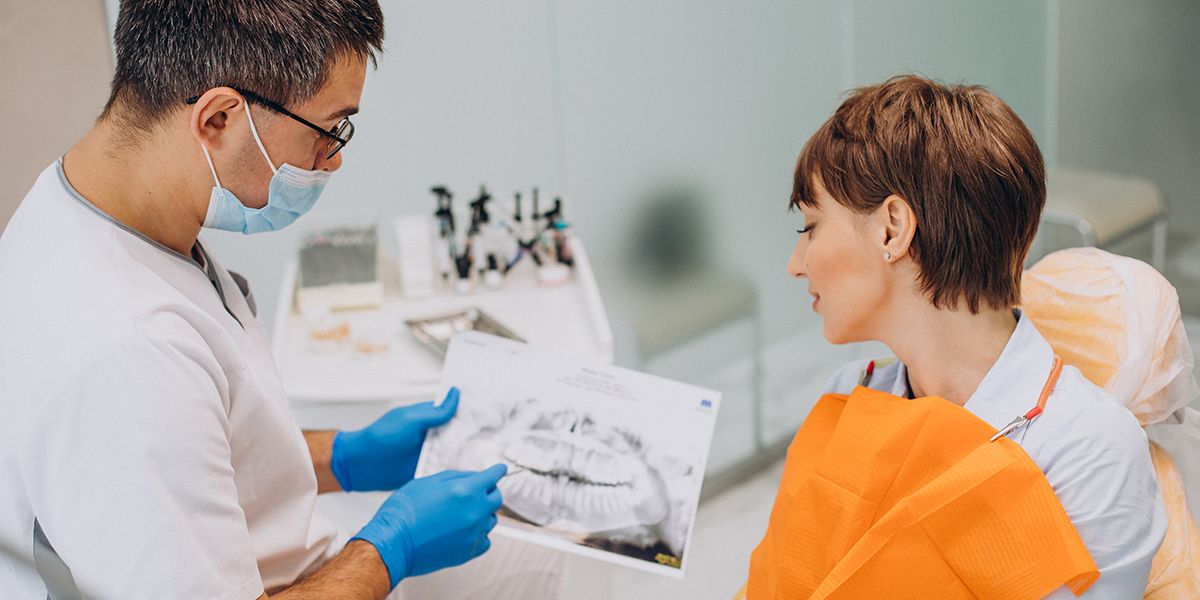

 According to the American Dental Association, there were a total of
According to the American Dental Association, there were a total of  The
The  Keep your teeth clean by brushing twice a day- morning and night with fluoride toothpaste and a soft-bristled brush. Your dentist can recommend the right products and instruct you on the proper technique.
Keep your teeth clean by brushing twice a day- morning and night with fluoride toothpaste and a soft-bristled brush. Your dentist can recommend the right products and instruct you on the proper technique. Preventive dental care covered by your insurance plans depends on the dental insurance company. While the below may be a standard indicator, you may want to ask your dentist or the dental provider about your plan.
Preventive dental care covered by your insurance plans depends on the dental insurance company. While the below may be a standard indicator, you may want to ask your dentist or the dental provider about your plan.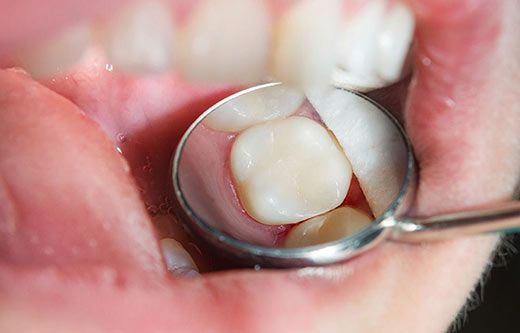 A statistic from FDI says nearly 60-90% of the school children and 100% of adults suffer from tooth decay
A statistic from FDI says nearly 60-90% of the school children and 100% of adults suffer from tooth decay Is There Any Financial Help for Dental Work?
Is There Any Financial Help for Dental Work?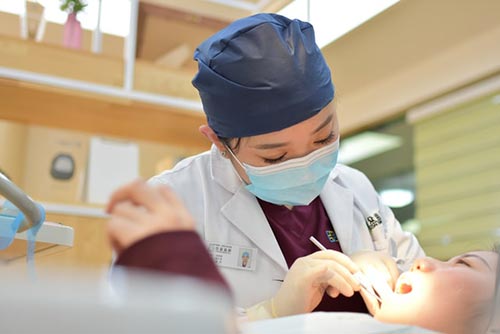 Root canals are commonly performed on individuals suffering from severe teeth rot due to cavities or other conditions. By the time you get to the root canal phase, it’s not an optional procedure; it’s mandatory. Root canals are also required when your teeth become infected to where natural tooth decay will occur.
Root canals are commonly performed on individuals suffering from severe teeth rot due to cavities or other conditions. By the time you get to the root canal phase, it’s not an optional procedure; it’s mandatory. Root canals are also required when your teeth become infected to where natural tooth decay will occur.